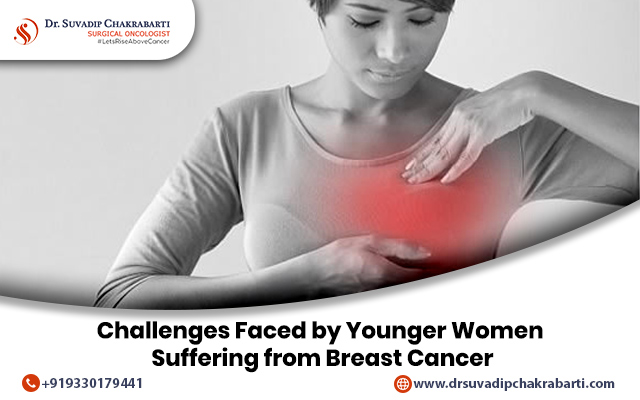Breast cancer is a disease that affects individuals across all age groups, but younger women face unique and often challenging circumstances when diagnosed. While breast cancer is more commonly associated with older women, its impact on those under 40 can be multifaceted. Learn more about the condition and the effects of breast cancer operation.
1. Aggressive Disease and Diagnosis
Younger women are more likely to get diagnosed with aggressive forms of breast cancer, like triple-negative breast cancer. The latter tends to grow and spread more quickly. Additionally, younger patients often face delays in diagnosis due to the misconception that breast cancer is unlikely in their age group. This delay can result in the development of more advanced stages of cancer by the time it is detected, complicating treatment and impacting the overall prognosis.
2. Fertility Concerns
One of the most significant challenges for younger women with breast cancer is the potential impact on fertility. Many cancer treatments after undergoing breast cancer operation, including chemotherapy and hormone therapies, can impair fertility. This presents a difficult choice between immediate cancer treatment and the desire to preserve future fertility. However, options such as egg or embryo freezing are available.
3. Impact on Family and Relationships
Younger women with breast cancer often face significant social and emotional challenges. They may be dealing with career aspirations, family planning and social relationships, all of which can be disrupted by a cancer diagnosis. Additionally, younger women may find themselves balancing caregiving responsibilities for children or ageing parents, adding another layer of complexity to their situation.
4. Long-Term Health Implications
Surviving breast cancer at a young age can come with long-term health implications. They may face cardiovascular issues, bone density loss, and a higher risk of secondary cancers. Monitoring and managing these long-term effects require ongoing medical attention and can impact the quality of life long after the initial treatment is completed.
5. Body Image and Self-Esteem
Breast cancer treatment often involves surgery, chemotherapy, and radiation. All of these can significantly alter a woman’s appearance. Changes that include hair loss, surgical scars, and altered breast contours can affect their self-esteem and body image. Physical appearance and confidence often matter to them, hence they may find it difficult to cope with these changes.
Conclusion
From aggressive disease types and fertility concerns to financial strain and emotional impact, the journey through breast cancer is uniquely difficult for this demographic.
By addressing these issues, we can better support younger women undergoing breast cancer operation through their cancer journey and beyond.

